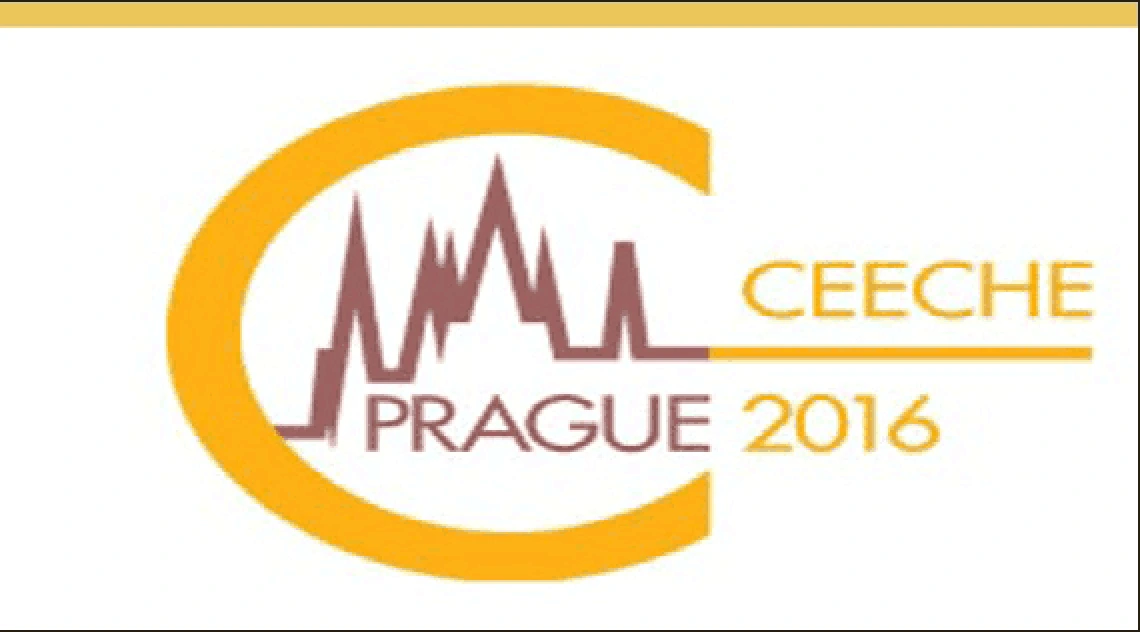UA SRP Attends 2016 Central and Eastern European Conference on Health and the Environment (CEECHE)

University of Arizona Superfund Research Program (UA SRP) Director Dr. Raina Maier was invited to co-chair a session entitled “Sustainable exposure prevention through innovative detection and remediation technologies,” at the recent Central and Eastern European Conference on Health and the Environment (CEECHE), April 10-14, in Prague, Czech Republic. CEECHE is held every two years to highlight the issues and research stemming from both recognized and emerging environmental health risks in the central and eastern regions of Europe. Additionally, the conference looks to develop international partnerships and increase collaborative efforts between trainees and junior scientists in different parts of the world, promoting an open exchange of research methods. Maier was accompanied by SRP Trainee, Ms. Juliana Gil-Loaiza. Together the team presented their latest work on mine tailings reclamation. Maier spoke about “Developing Biogeochemical Indicators to Enhance Revegetation Success of Mine Tailings and Waste Rock: An Industry-Academic Research Cooperative Approach”, and Gil-Loaiza presented a poster, “Quantifying dust reduction and potential health risks from mine tailings following revegetation.”
A conference highlight for Gil-Loaiza were talks and posters on the concept, “exposome,” which involves identifying and measuring all possible environmental and chemical exposures at the individual level - starting from the womb and then addressing all stages of development while also taking lifestyle and behavior into account. After the conference she said, “I think it is fascinating how exposome research is working to bring so many interactions and variables together to understand how environmental factors shape our health and responses to stressors.” She noted that this concept leads to discussions on “personalized medicine” as it relates to the future of disease prevention and treatment. Gil-Loaiza also saw a connection between the exposome concept and UA SRP research work to reduce the potential health and environmental risks associated with legacy mine tailings. She points out that these legacy sites and their contaminants represent risks not only to individuals, but also potential exposures at a regional level.
 Finally, SRP attendees had the opportunity to absorb the local sites, culture, and flavor of Prague. Juliana said, “I really enjoyed walking around the city. It was interesting to see the changes in architecture from very old and medieval gothic in Old Town, to the colorful and detailed baroque and red clay roof buildings, to the communist era buildings. (The architecture) definitely reveals all the different eras and history of the city.” Juliana also said that she was impressed with the obvious influence of lager beer in the Czech Republic, the home of the original Budweiser beer!
Finally, SRP attendees had the opportunity to absorb the local sites, culture, and flavor of Prague. Juliana said, “I really enjoyed walking around the city. It was interesting to see the changes in architecture from very old and medieval gothic in Old Town, to the colorful and detailed baroque and red clay roof buildings, to the communist era buildings. (The architecture) definitely reveals all the different eras and history of the city.” Juliana also said that she was impressed with the obvious influence of lager beer in the Czech Republic, the home of the original Budweiser beer!

